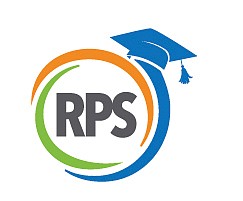SOL scores show symptom of larger problem
Holly Rodriguez | 9/8/2022, 6 p.m.
The Standards of Learning low test scores recently reported for Richmond Public Schools can partially be attributed to the COVID-19 pandemic.
But for RPS, the abysmal results point to a larger systemic problem that will require an overhaul and change in approach across the district to improve. Under the best of circumstances, results will take up to a decade, according to Dr. Gabriel Reich, a professor at the Virginia Commonwealth University School of Education.
Dr. Reich has researched how students reason when answering standardized test questions and school reform efforts in inner cities.
“One thing the tests tell us is literacy rates, and our students in RPS are lagging behind other districts, for sure,” he said.
Dr. Reich pointed to a number of factors beyond the classroom that are likely contributing to the low scores — and problems that have plagued inner-city populations long before the pandemic, such as housing insecurity and lack of health care.
“How many students have undiagnosed eye care needs, for example?” he said. “Richmond has one of the highest eviction rates in the country — how many students face housing insecurity?”
In addition to these familiar factors that negatively impact student performance outside the classroom, the national trend of teacher shortages is impacting students in the classroom as many leave the profession, Dr. Reich said. A focus on hiring and keeping teachers is one problem impacting students that districts can, and should, work to immediately resolve.
“Teacher vacancies are an indication of a lack of trust between teachers and school administrators and politicians,” he said.
The curriculum for the district is another issue school districts can control.
At the most recent School Board meeting, several teachers mentioned the shortcomings of the current curriculum used by RPS. But when Kenya Gibson, 3rd District and vice-chair of the RPS School Board made a motion to phase out that curriculum and work this school year to find a new one, the motion did not pass.
“Attempting to do something dramatic that can show quick results doesn’t help and creates tremendous stress for teachers,” Dr. Reich said. “To improve most test scores, there needs to be a sustained focus on literacy in every subject — specifically, reading to analyze.” Engaging material to tap into student interest makes learning easier, according to Dr. Reich.
Despite making these changes, he said, transforming low-performing schools into high performing ones rarely happens. But according to one researcher who, when the turnaround does happen, success is built on one core principle: Trust.
In his book “Trust in Schools,” Dr. Anthony S. Bryk, former president of the Carnegie Foundation for the Advancement of Teaching, analyzed reform efforts in 400 Chicago schools. In his qualitative and quantitative research, Dr. Bryk found that a high level of trust among parents, teachers, administrators and boards correlated with better test scores.
“So then you have to ask: To what extent is RPS looking at building trust between teachers, administrators and parents?” he said. “I have student teachers who go to teach in the spring at all of the districts [of greater Richmond], and they have told me that some of the students don’t know the names of other students in their own classroom.”
He said rebuilding a sense of community, around things that connect students’ lives and what they are learning in school in a real way is going to be more likely to bring about the improvement in student performance RPS would like to see. “Rather than using an off-the-shelf, purchased curriculum and pressure on teachers to get better results,” he said.
Frustration with the RPS educational crisis, as the Richmond Crusade for Voters describes it, pushed the organization to declare expectations from the district to lead toward student improvement. The demands included: The mayor respecting the School Board and focusing on funding for RPS; an audit of attendance, staffing and all funds used for literacy programs; and a plan to improve teacher retention.
Marty Jewell, former city councilman and chair of the Richmond Crusade for Voters education subcommittee echoed Dr. Reich’s concern about the curriculum and student needs.
“We need to figure out how to apply the curriculum to the needs of the students in the classroom,” he said. “Start there or you’ve got nothing.”







